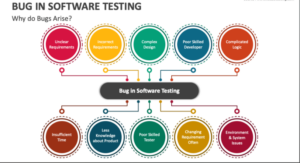Introduction
In today’s fast-paced digital landscape, the demand for skilled Quality Assurance (QA) professionals is higher than ever. Companies are constantly seeking efficient ways to deliver high-quality software products, and this is where QA Automation comes into play. A QA Automation Course can significantly boost your career, equipping you with the skills and knowledge needed to excel in this critical field. This article explores how enrolling in a QA Testing Online Training Course can help you become a sought-after QA automation specialist.
Understanding QA Automation
What is QA Automation?
QA Automation involves using software tools and scripts to automate testing processes, ensuring that applications function as intended. This approach increases testing efficiency and reduces the time and effort required for manual testing. By automating repetitive tasks, QA professionals can focus on more complex testing scenarios, ultimately improving product quality.
The Importance of QA Automation in Software Development
- Speed and Efficiency: Automated tests run significantly faster than manual tests, allowing for quicker feedback cycles during development.
- Consistency and Accuracy: Automated tests eliminate human error, ensuring that tests are executed in the same manner every time.
- Cost-Effectiveness: Although initial setup costs can be high, automation saves money in the long run by reducing the time spent on manual testing.
Industry Statistics
According to the World Quality Report 2022-2023, 62% of organizations have adopted test automation in some capacity. Moreover, organizations that prioritize automation see a 30% increase in the speed of their release cycles. These statistics highlight the growing need for skilled QA automation professionals.
Benefits of Taking a QA Automation Course
Comprehensive Skill Development
A QA Automation Course focuses on essential skills, including:
- Test Automation Frameworks: Learn about various frameworks such as Selenium, JUnit, and TestNG, which are pivotal in creating robust test scripts.
- Programming Languages: Familiarity with programming languages like Java, Python, or C# is crucial. Many courses include hands-on coding exercises to strengthen these skills.
- Continuous Integration and Continuous Deployment (CI/CD): Understanding CI/CD tools like Jenkins helps in integrating automated tests into the development pipeline.
Real-World Applications
Courses often incorporate real-world scenarios, allowing you to apply your knowledge in practical settings. For example, you may work on projects simulating actual testing environments, which helps solidify your understanding and prepares you for the challenges you’ll face in the workplace.
Networking Opportunities
Enrolling in a QA Automation Course opens doors to networking with industry professionals and fellow learners. Building relationships with experienced testers and automation engineers can provide insights into job opportunities and industry trends.
Increased Job Opportunities
As companies increasingly shift towards automation, the demand for QA automation specialists continues to rise. Completing a QA Automation Course positions you favorably in the job market. Many organizations actively seek professionals with quality assurance tester training, making you a valuable asset.
Course Structure: What to Expect
Introduction to Quality Assurance
- Overview of QA concepts
- The software development lifecycle
- Manual vs. automated testing
Test Automation Fundamentals
- Understanding test automation
- Benefits and challenges of automation
- Selecting the right automation tools
Hands-On Training with Popular Tools
- Selenium: Learning to write test scripts using Selenium WebDriver.
- Appium: Automating mobile applications.
- Postman: Automating API testing.
Programming Basics for Test Automation
- Introduction to programming concepts
- Writing and debugging simple scripts
- Data-driven testing and its applications
Continuous Integration/Continuous Deployment (CI/CD)
- Understanding CI/CD principles
- Implementing automated tests within CI/CD pipelines
- Tools like Jenkins, Travis CI, or CircleCI
Capstone Project
- Completing a real-world project that encompasses everything learned
- Collaborating with peers to simulate a professional environment
- Presenting your project to instructors for feedback
Key Takeaways from a QA Automation Course
Enhanced Skills and Knowledge
Upon completing the course, you will have:
- Proficiency in automation tools and frameworks.
- Understanding of the programming languages relevant to QA automation.
- Knowledge of best practices for integrating automated tests into the software development lifecycle.
Career Advancement
Armed with the skills acquired from the course, you can pursue roles such as:
- QA Automation Engineer
- Test Automation Developer
- Software Quality Engineer
Certification
Many courses provide certification upon completion, validating your skills and enhancing your resume. This credential can significantly improve your chances of landing interviews and job offers.
Real-World Examples of Successful QA Automation Careers
Case Study 1: John’s Journey to Automation Engineer
John, a recent graduate, enrolled in a QA Automation Course to gain practical skills in test automation. After completing the course, he secured a position as a QA Automation Engineer at a leading software company. His ability to automate testing processes reduced the release time by 25%, earning him recognition and a promotion within a year.
Case Study 2: Maria’s Transition from Manual to Automation Testing
Maria had several years of experience in manual testing but wanted to enhance her career prospects. After taking an online quality assurance training course, she gained confidence in automation tools and programming. Maria successfully transitioned to a test automation role and now leads a team of testers at her company.
Conclusion
A QA automation training Course is a powerful investment in your career. By providing you with the skills, knowledge, and real-world experience needed to succeed in the fast-evolving tech landscape, these courses prepare you for a rewarding career in quality assurance. As companies increasingly rely on automation to enhance their software quality, the need for skilled QA automation professionals continues to grow.
Call to Action
Ready to take the next step in your career? Enroll in H2K’s QA Testing Online Training Course today! Gain practical skills, connect with industry experts, and unlock your potential as a QA automation specialist. Don’t miss this opportunity to enhance your career and stay ahead in the competitive job market.
Key Takeaways
- QA Automation Courses provide essential skills for success in quality assurance.
- Real-world applications and projects prepare you for industry challenges.
- Networking opportunities can lead to valuable career connections.
- Increased job opportunities await those who complete QA Automation Courses.
Additional Resources
For more information on quality assurance and automation, check out our other blog posts:
- Understanding the Role of a QA Tester
- Top Tools for QA Automation in 2024
- How to Prepare for a QA Automation Interview
By focusing on these aspects, you can effectively communicate the value of a QA Automation Course and its impact on career growth in the tech industry.































2 Responses
This article provides valuable insights into how a QA Automation course can significantly enhance your career. It highlights the growing demand for Quality Assurance Automation professionals and the skills needed to stay competitive. By emphasizing both technical expertise and industry trends, the article is a great resource for anyone looking to advance in Quality Engineering & Automation.